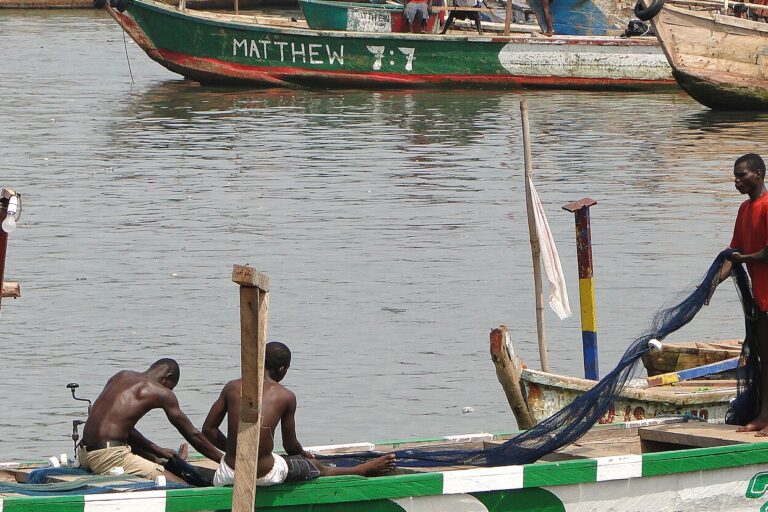A new paper paints a grim picture for the future of fishing communities in the Gulf of Guinea along coastal West Africa. Faced with increasing ocean warming and declining fish stocks, fishing communities in Ghana, Côte d’Ivoire and Nigeria struggle to survive. The paper’s authors advocate for income diversification among fishing communities as a critical adaptation strategy.
The catch of small pelagic fish in Ghana declined by 59% between 1993 and 2019, and Côte d’Ivoire by 40% between 2003 and 2020. Researchers say the declines are linked to Illegal fishing by Chinese trawlers, overfishing by traditional canoes, and climate change. “This last factor will drive away stocks of small pelagic fish even if the illegal fishing and the overfishing is brought under control,” paper co-author Robert Paarlberg, an associate in the sustainability science program at Harvard University, told Mongabay.
“Ocean warming will continue, and will continue to push down the maximum catch potential of the coastal fisheries.” Rising sea surface temperatures have resulted in a geographic shift of small pelagic fish populations at a rate of up to 200 kilometers (124 miles) per decade toward areas with more favorable water temperatures. Another factor contributing to the crisis is illegal fishing. Often owned by Chinese companies, large trawlers violate exclusion zones reserved for local fishers, while using banned small-mesh nets. At the same time, traditional artisanal fishing fleets have grown in size and capacity, contributing further to overfishing. Government reforms to stabilize the fisheries, including closed seasons and subsidy reviews, have…This article was originally published on Mongabay


